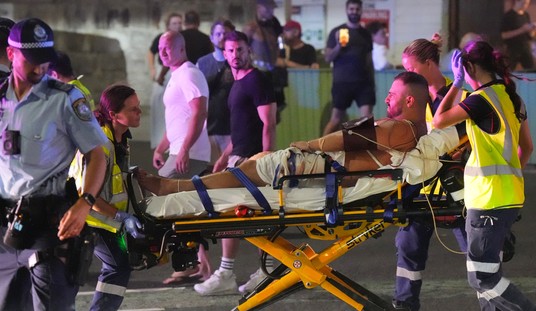Right now, a lot of people are scrambling to try and figure out what gun laws might have prevented the shooting in a Manhattan office building. They're desperate to put the blame on Nevada, too, since the Big Apple has tons of gun laws.
They're not doing a very good job of it, though.
Unsurprisingly, CNN has been knee-deep in this effort.
Now, they're trying to say that a law that went into effect this year could have totally prevented the attack.
A new Nevada law that went into effect last month gives police officers the power to confiscate firearms from a person placed on a mental health crisis hold. Experts say it was designed to work in cases like the gunman who opened fire in a Manhattan office building on July 28.
[The killer], 27, of Las Vegas, owned guns and was placed on a psychiatric hold in 2022 and 2024 after his mother reported to police her son was threatening to take his own life, according to records from the Las Vegas Metropolitan Police Department.
[He] had a Nevada license to carry a concealed weapon when he killed four people at the 345 Park Avenue office building in New York and injured another before he died by suicide, police said.
The key to the state’s new law is it allows police to confiscate the firearms of someone experiencing a mental health crisis before a court’s ruling.
It authorizes a law enforcement officer who places someone on a mental health crisis hold to “immediately confiscate a firearm owned or possessed by the person” and provide them with a notice detailing the procedures determining the return of the firearm.
The state’s earlier red flag law is similar to others around the country. It is intended to keep guns out of the hands of those who pose a threat to themselves or others but requires a court process, after law enforcement or family members initiate a request to temporarily restrict their access to firearms.
The problem with this is that it requires a logical leap of Olympic proportions.
Yes, the killer was placed in a 72-hour hold at a mental health facility in 2024, but this is 2025. There's absolutely no evidence that he wouldn't have gotten his guns back. It was a hold because he was expressing some suicidal ideations, but not that he wasn't held for longer than that 72 hours. The experts didn't see him as a danger to himself or others.
So why would the courts?
I get that people look for answers and solutions in the wake of horrific events. I understand that entirely. I've done it myself, and done it more times than I care to count. It's normal, I think, to try to do something so you don't see something like this happen again.
But this ain't it.
This is nothing more than woulda, shoulda, coulda.
It's not a sound look at the facts on the ground. For example, Nevada has had a red flag law in effect since 2020, as the above piece alludes to. Had he seemed like a risk, why didn't anyone try to take his guns previously? If he didn't seem like a risk, then why would a court refuse to give him his guns back?
What we're seeing is the justification of one law while trying to hide the failure of another law beloved by anti-gunners. They don't want anyone looking too closely at how little these laws actually do, so they try to misdirect you into looking at something entirely different. They shift the blame, saying if this new measure were in place sooner, they might have stopped it.
But there's no evidence of that.
Then again, when has CNN ever needed evidence?








